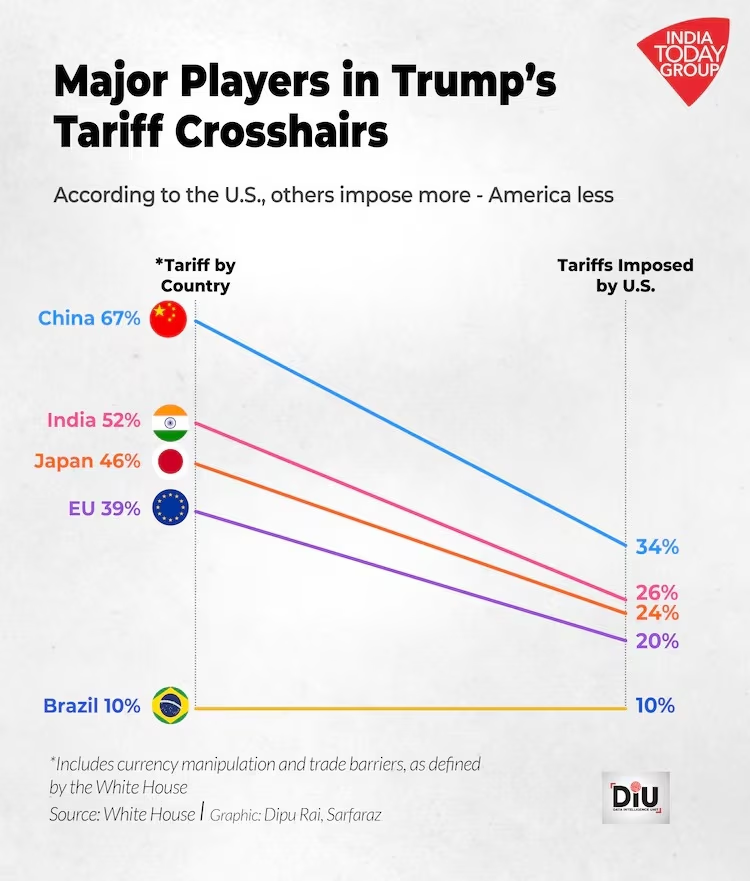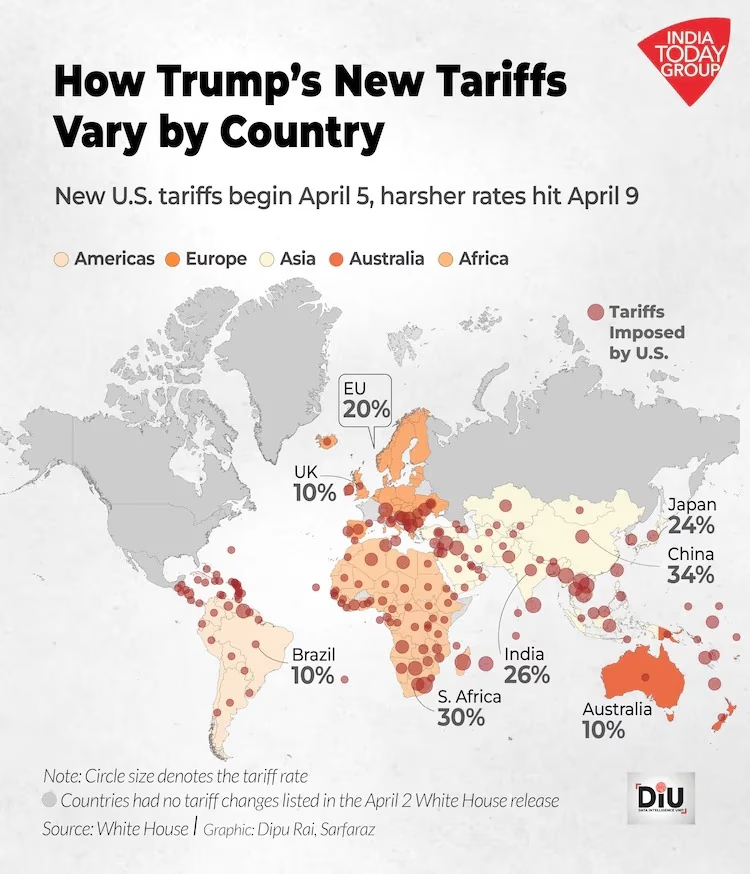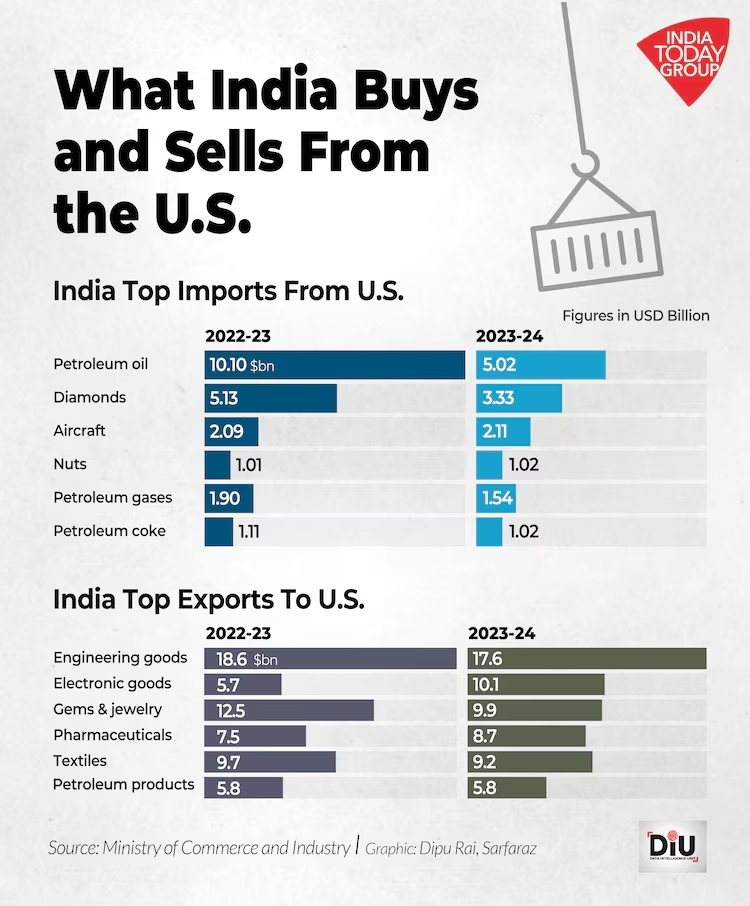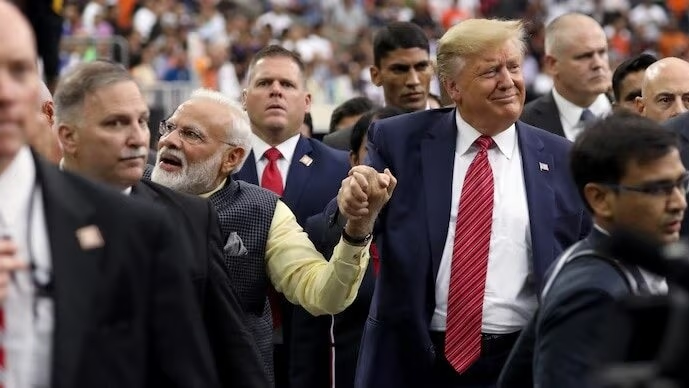The United States, under President Donald Trump, has imposed a 26% tariff on Indian imports, making it tougher for Indian traders to strike deals with American businessmen. With this decision, Indian products will become costlier by 26% in the US market, potentially reducing their competitiveness there.
What's New
All goods imported from India to America now entail a 26% tariff. President Trump announced his tariff policy, emphasizing that 'India is very tough.' While referring to Prime Minister Narendra Modi as a good friend, he conveyed, 'You're not treating us as you should.' Notably, Trump declared this 26% tariff while India imposes a 52% tariff on US goods.

Source: aajtak
With India's prior imposition of a 52% tariff, Trump has reciprocated with a 26% 'retaliatory tariff.' From April 5, all imports face a 10% tariff, with additional charges from April 9 on nations Trump accuses of 'cheating' the US.
Why It's Important:
Despite easing trade and immigration rules, India is hit hard by these new tariffs, affecting electronics, jewelry, and textiles. However, the pharmaceutical sector remains unaffected, as Trump chose to provide relief there.

Source: aajtak
Indian imports face higher tariffs compared to the EU (20%), Japan (24%), and South Korea (25%), though still below China (54%) and Vietnam (46%). The US runs a trade deficit of $46 billion with India. Trump intends to keep the tariffs until this is resolved. To appease the Trump administration, India may reduce tariffs on US imports by $23 billion.

Source: aajtak
Global Impact:
The US has also imposed an additional 34% tariff on Chinese goods besides a standing 20%. The UK faces a 10% tariff, deemed lower than expected. South Korea's acting president Han Duk-Soo vowed a 'fitting' response to their 25% tariffs, whereas Japan's PM Shigeru Ishiba questioned the tariffs, highlighting Japan's significant investments in America.
Canada and Mexico's Status:
Both nations are exempt from new tariffs, though Canadian steel, aluminum, and autos now face a 25% tariff.
At a White House event, Trump labeled India as 'very strict,' stating 'You're friends but aren't treating us fairly,' which echoed after PM Modi’s visit. He cited India’s 52% duty as a reason for his strong stance. India, already grappling with slower growth, might see adverse effects due to this trade move, given last year’s post-pandemic growth rate of 6.5%.




